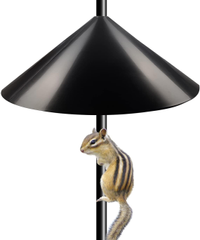How to protect your bird feeder from hungry squirrels in 5 steps
Make sure it’s the local birds who are getting fed
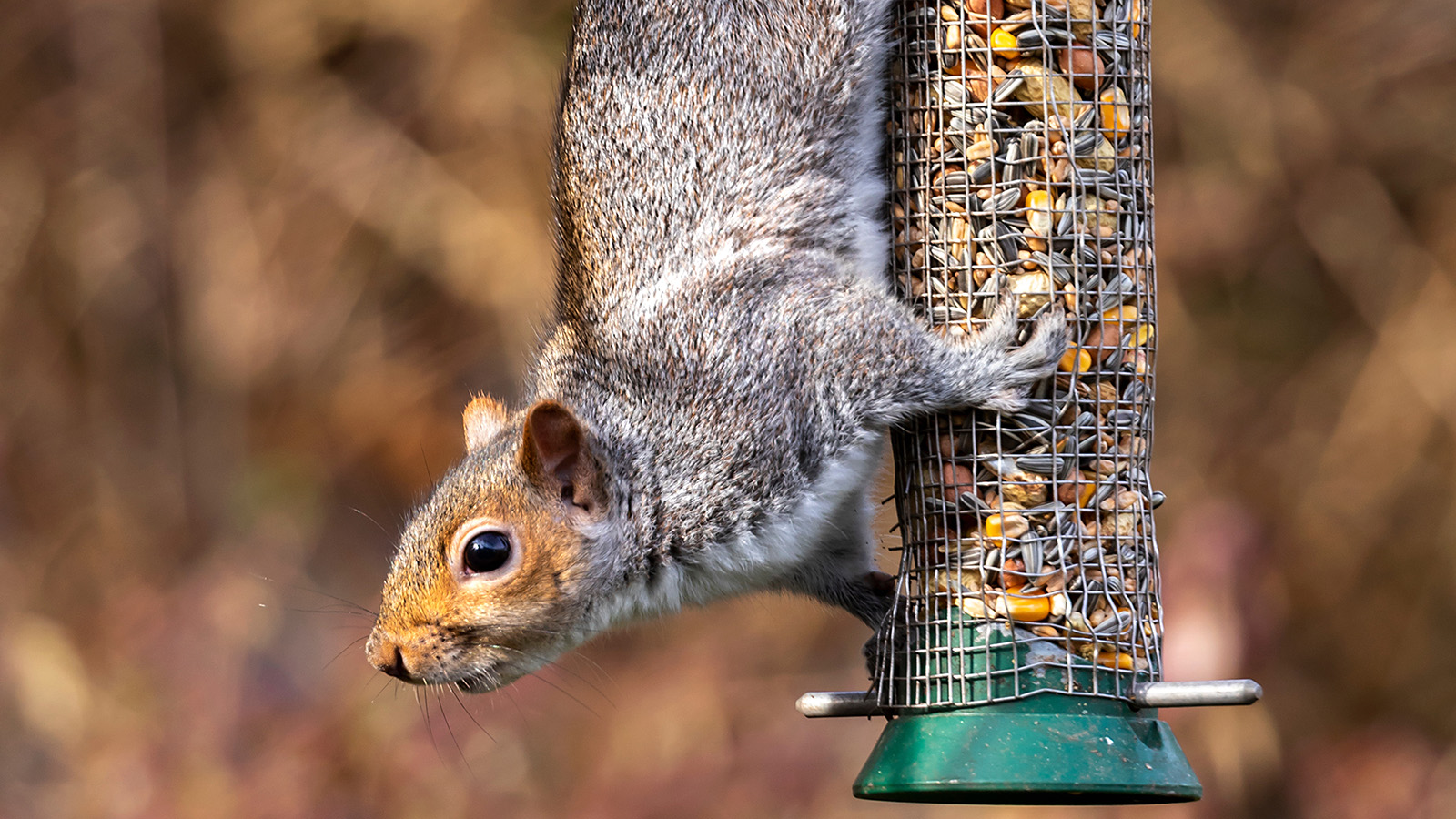
If you’ve hung up a bird feeder in your garden, then it’s safe to assume that you were hoping it would feel the local birdlife in your area. Unfortunately, there’s a good chance that the feeder is being visited as much by squirrels as by feathered friends. Squirrels are not dangerous or harmful to the local environment, but they can end up taking away valuable food from the birds and creating a mess in the process. It’s natural to want to curb the visits from squirrels and keep your bird seed for the intended visitors: birds.
This can be a challenge, since squirrels are incredibly agile and resourceful. Even bird feeders that are marketed as “squirrel-proof” may still find themselves visited by particularly hungry and curious squirrels, and if you've invested in a smart bird feeder, you may just end up watching in real time as squirrels steal all the food you'd left out with the intention of birdwatching! Keeping your bird feeder accessible to birds while shutting out squirrels requires a few careful actions that will keep all wildlife safe and healthy, but only some fed by your bird seed.
Here are five ways to keep squirrels at bay:
1. Hang the bird feeder in a high or removed location
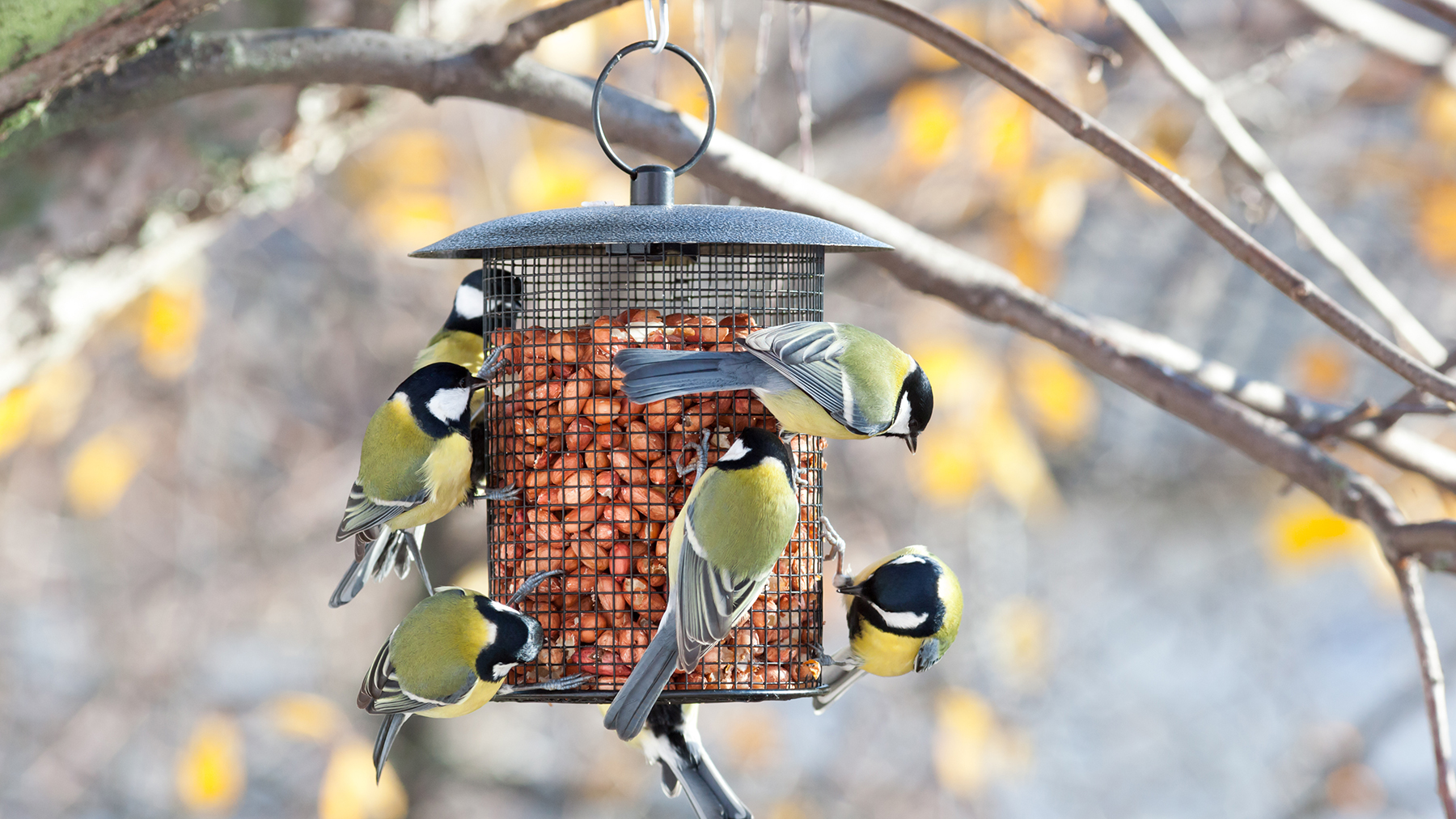
Squirrels are athletic and agile, able to leap several feet and clamber up branches or along wires. If your bird feeder is tied to a branch or strung from a similarly climbable source, then it will be very easy for squirrels to reach the feeder. The good news is that birds are even more capable of reaching far-off locations, thanks to their ability to fly. One way to limit the accessibility of the feeder is to hang it at least several feet above the ground so that squirrels can’t leap up onto it. Also, try to keep it at least seven-nine feet away from any nearby trees, so that squirrels can’t jump from the branch onto the feeder.
This may be easier to do in larger gardens where there is a lot of empty space, versus a small garden. You might want to string the feeder from a long vertical wire that will be harder for the squirrel to climb, while also providing additional height and distance. Just remember that you will need to be able to reach the feeder to refill it with seeds, so don’t put it so out of the way that you cannot access it either.
2. Fill the feeder with safflower seeds
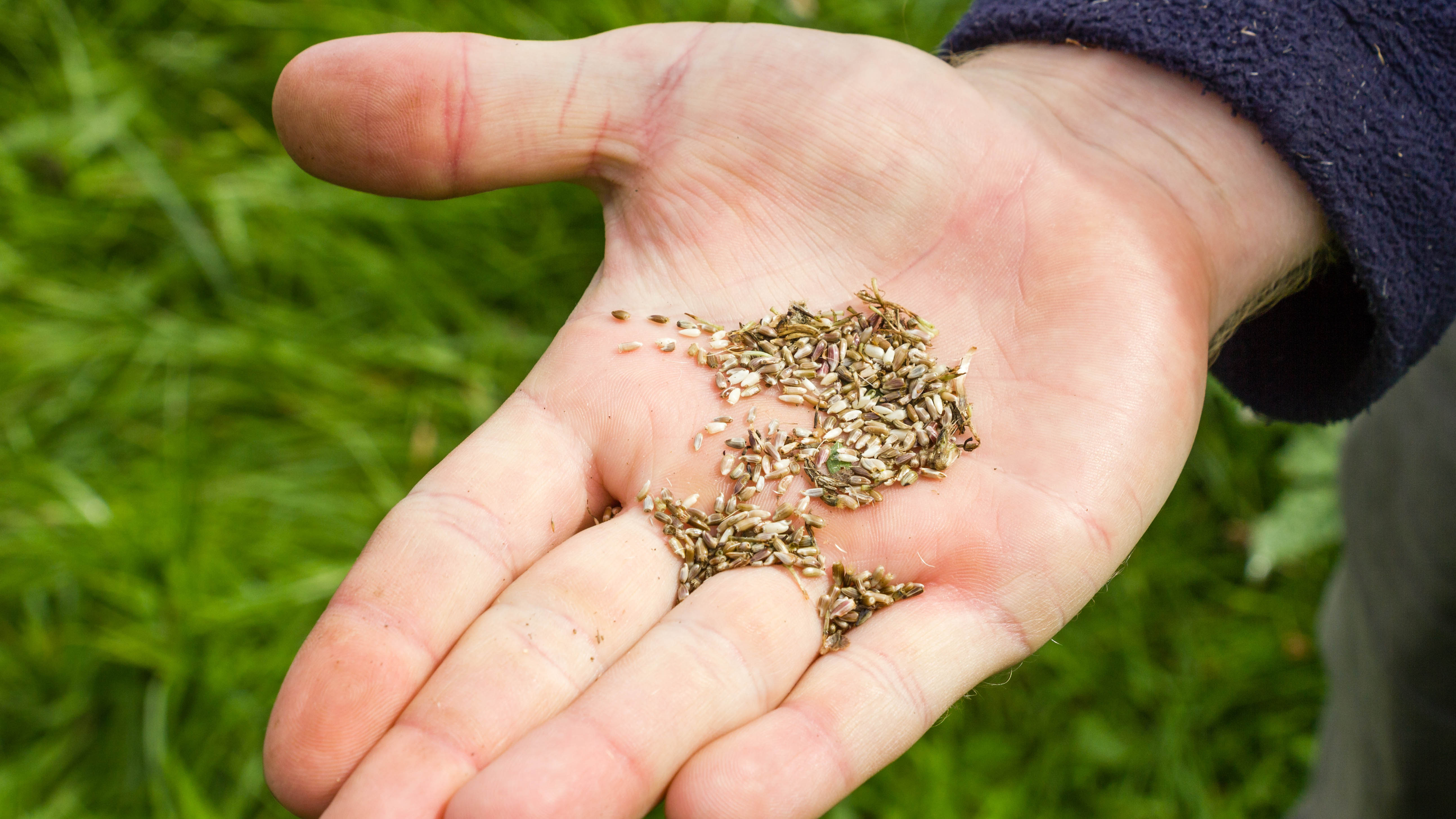
As much as you don’t want to feed the squirrels, it’s important to not do any harm to the wildlife at the same time. One way to balance these two needs is to choose seeds that are non toxic – but maybe still unpleasant to squirrels. Some seeds are more palatable to animals and others, and many experts believe that safflower seeds are particularly disliked by squirrels. Fortunately, birds seem to like them just fine. By filling the bird feeder with safflower seeds, you can teach the squirrels that they won’t find a delicious meal from that source while still giving birds the nutrition they need. Over time, the squirrels may learn to avoid that feeder altogether and so you can begin to mix up the contents again, without worrying that they’ll just become squirrel food.
Safflower seeds are not to be confused with sunflower seeds, although both are readily available and commonly used to feed birds. If you can’t find safflower seeds, other options that are thought to deter squirrels include nyjer seeds and white proso millet. Any mix of these will be popular with birds while being unpalatable to squirrels.
Sign up to get the BEST of Tom's Guide direct to your inbox.
Get instant access to breaking news, the hottest reviews, great deals and helpful tips.
3. Dip the seeds in spices first
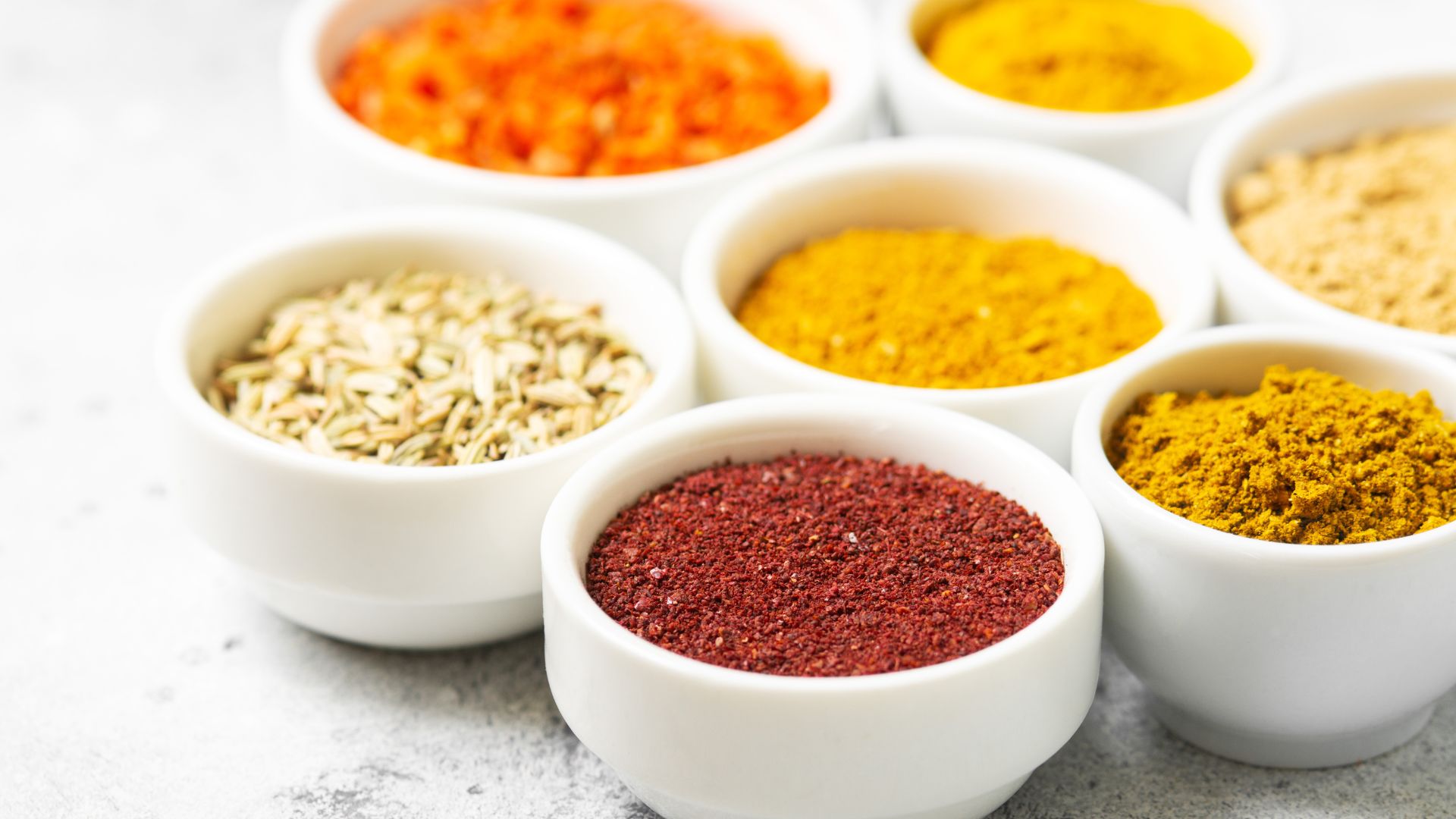
Another way to make the seeds appealing to birds but unappealing to squirrels is to take advantage of another quirk of nature: birds cannot detect spiciness, but mammals can. This means that if you cover the birdseed in spicy powder, like cayenne or chili pepper, the squirrels will pick up on this spice and be turned off due to the unpleasant sensation of capsaicin. Since the birds are not sensitive to capsaicin, they will happily eat the spicy seeds with no bother. It will do no harm to the birds either, so you don’t need to worry about the impact of the cayenne on their health.
Like with the safflower seeds, over time this may turn the squirrels away from the feeder altogether so that you can stop adding cayenne to future seed mixes. You can simply toss the seeds in a bag with a few teaspoons of spices, to coat them sufficiently before adding them to the feeder. You can use any spice you keep at home or easily buy some from a grocery stor
4. Install a spinning hook or a baffle
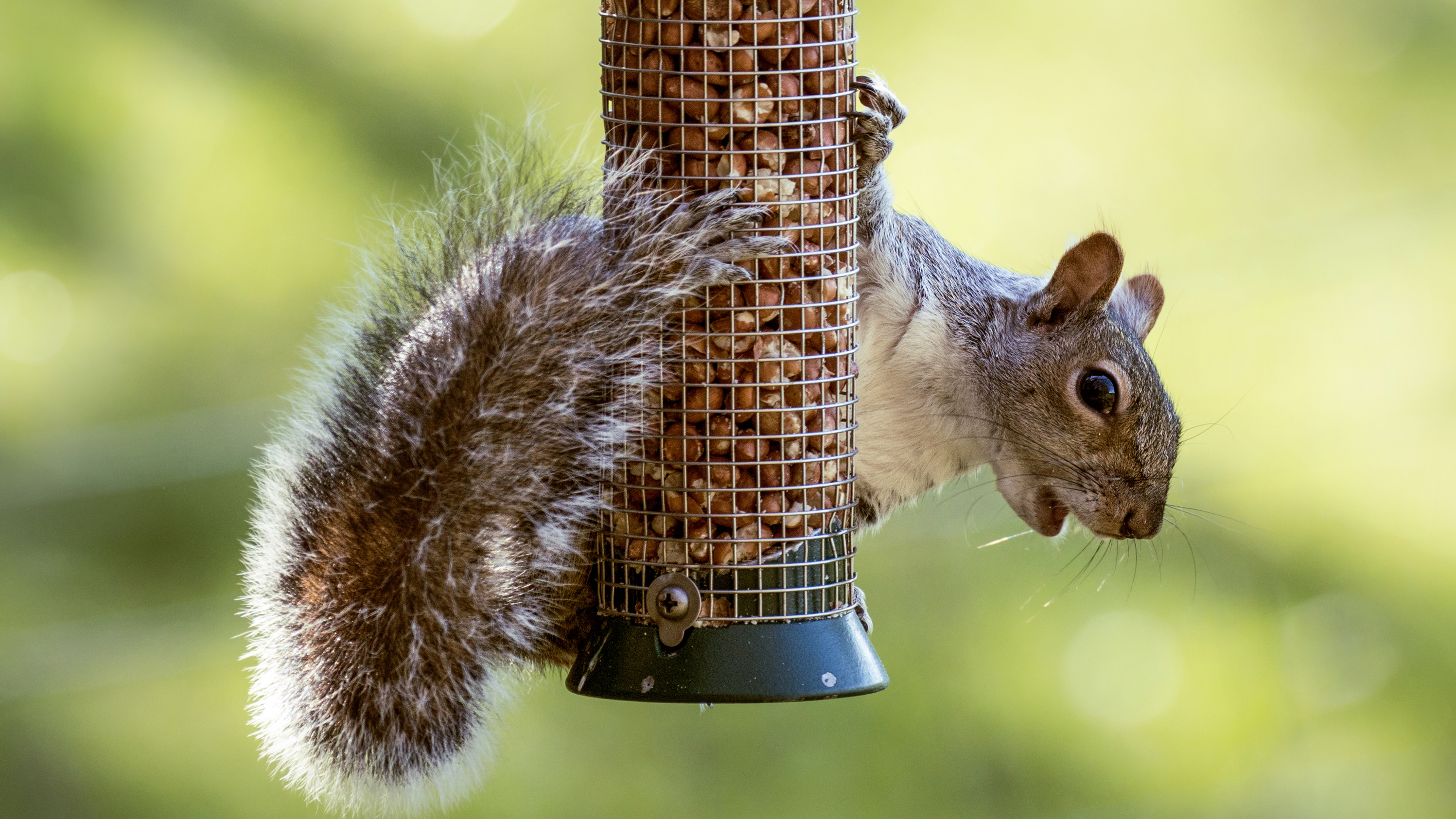
If you’re looking for a one-and-done solution, then you might want to consider installing a spinning hook or a baffle. These devices are designed to impede the squirrels’ ability to get into the bird feeder, but in different ways. A spinning hook (or a spinning bird feeder) will encourage the bird feeder to rotate in place, making it harder for squirrels to maintain their position. They’re unlikely to harm the squirrels in any way, but may gently knock them off the bird feeder in question before they’re able to eat. Spinning hooks are not particularly noticeable to the eye so you also won’t need to disrupt the visual appeal of your bird feeder.
A baffle is a piece of metal that wobbles and therefore similarly keeps the squirrel from getting a firm footing. Not only is the surface non-grip, but these metal surfaces can also help shield the bird feeder from the elements so the bird seed stays nice and dry. You can find baffles in a few different designs but they are all created to keep squirrels out of the feeder, without limiting access to the birds. A baffle might not be the most attractive option, but they are affordable, effective and a quick fix.
Attach this squirrel protector to your bird feeder pole to prevent pests from climbing up and stealing seeds from underneath. Its slippery surface means they won't be able to clamber up, either.
5. Use a tray to collect scattered seeds
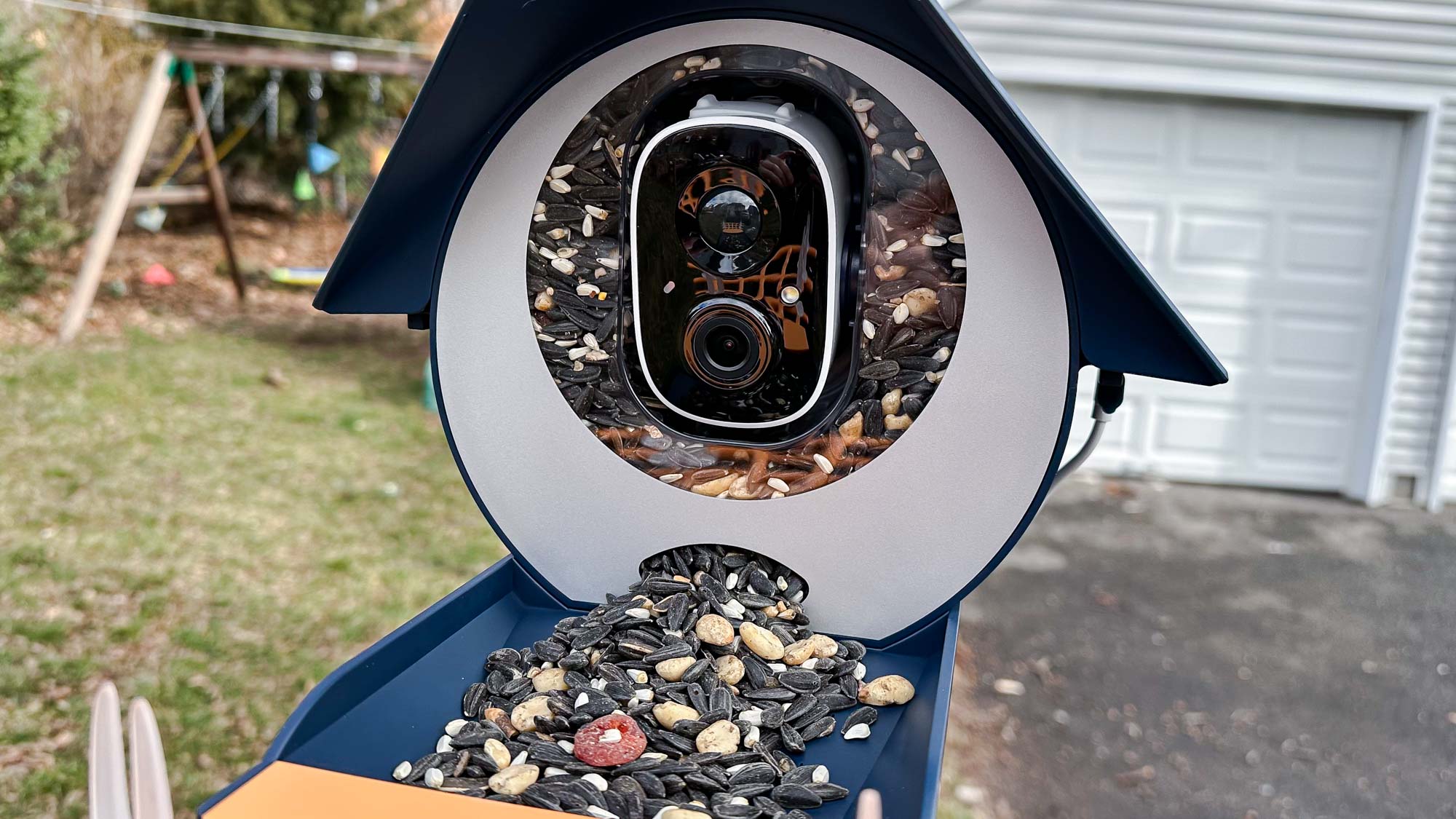
Squirrels don’t normally locate bird feeders through scent, but simply through opportunity. This means that you can help to keep squirrels at bay by limiting their discovery of the bird feeder in the first place. In practice, this looks like clearing up any scattered seeds that have fallen from the feeder onto the ground. Squirrels that naturally pass by will begin to notice their accumulation and learn to seek out seeds in that area; by removing seeds before the squirrels find them, you reduce the chance of them finding the bird feeder altogether.
While you can manually sweep up seeds on a regular basis, one easy method is to simply install a tray under the feeder so that it catches any bird seed that falls. You’ll need to make sure to clean this tray regularly, to prevent mold and dirt, but this will be less work overall than daily sweeping.
More from Tom's Guide
Madeleine Streets is a writer and content manager based in New York City. She covers an eclectic mix of lifestyle, technology, finance and health and has been published in Tom's Guide, Women's Wear Daily, SELF, Observer, Footwear News and others. Originally from London, Madeleine has a penchant for tea, baking and moody weather. When she’s not writing, you can find her exploring the city’s bookstores, hunting down new restaurants, fostering cats and cheering on Arsenal FC.
